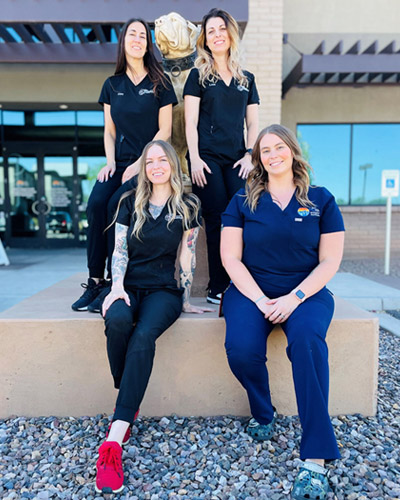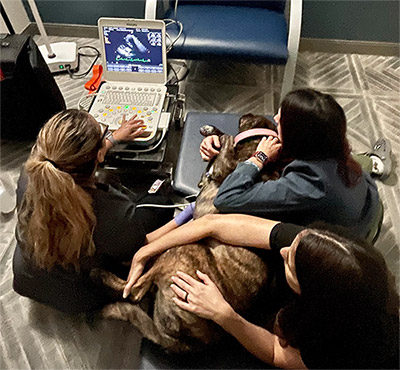
GQ Offers Cardiology Consultations for dogs and cats performed by Dr. Christopher Paige MS, DVM, DACVIM


What is Veterinary Cardiology?
Veterinary Cardiology specializes in the diagnosis and treatment of canine and feline cardiovascular disease as well as some pulmonary disease.
The most common diseases of the heart and lungs in pets include:
- Congestive heart failure (CHF)
- Heart muscle disease (Dilated Cardiomyopathy or Hypertrophic Cardiomyopathy)
- Valvular disorders
- Congenital heart defects
- Cardiac arrhythmias
- Cardiac tumors
- High blood pressure (hypertension)
- Pulmonary hypertension (high blood pressure in the lungs)
Symptoms of Canine or Feline Heart Disease
- Weakness
- Exercise intolerance
- Shortness of breath or apparent difficulty in breathing
- Fast breathing at rest (not to be confused with normal panting)
- Collapse
- Fainting spells
- Cough
- Elevated heart rate
What to expect during a Cardiology Consultation
A cardiology consultation starts with a review of your pet’s medical history and test results followed by a combination of the following diagnostic tools, depending on your pet’s needs:
- Blood Pressure Monitoring: Monitoring blood pressure is a noninvasive way to determine if your pet has systemic hypertension.
- Electrocardiography (ECG): An ECG (EKG) evaluates your pet’s heart rhythm. ECGs are diagnostic in cases of electrical disturbances, which can cause fainting, weakness and shortness of breath.
- Echocardiography: An echocardiogram is a noninvasive comprehensive ultrasound that allows us to look at the chambers of the heart as well as how the blood flows through it.
Following the completion of these diagnostics, a thorough report of the Cardiologists findings is discussed with you and forwarded to your pet’s primary veterinarian for continued medical treatment of cardiac or respiratory disease.


